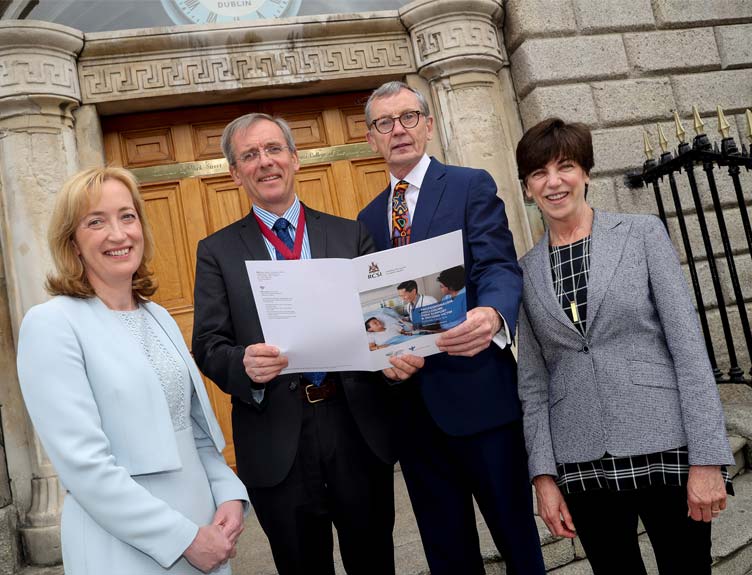Systems and culture change will support open disclosure in healthcare

Supporting the further development of a culture of open disclosure in medical practice in Ireland is one of the issues that will be addressed at a major national conference on medical professionalism taking place at RCSI today.
The conference, focusing on disclosure and peer support, will hear from speakers including Harvard Professor Jo Shapiro, author of the scoping inquiry into the CervicalCheck Screening Programme Dr Gabrielle Scally, and Bernadette O’Reilly, Chairperson of Patients For Patient Safety Ireland.
Speaking ahead of today’s conference, RCSI and BSHS Chair of Medical Professionalism Prof. Dubhfeasa Slattery said: "Today is about bringing together stakeholders across healthcare to discuss how we can further improve patient centred care by promoting a stronger culture of professionalism. Evidence demonstrates that professionalism is intimately linked to patient safety, patient centred care and healthcare professional wellbeing, recruitment and retention."
Open disclosure will be addressed at the conference with a keynote presentation from Prof. Jo Shapiro on 'Open disclosure, peer support and resilience'. At present, open disclosure is voluntary in Ireland but it will become mandatory for ‘serious patient safety incidents’ under the proposed Patient Safety Bill.
According to Prof. Slattery: "The vast majority of healthcare professionals understand that open disclosure after something goes wrong is the right thing to do. It means having a frank and honest conversation with a patient or their family, apologising for what has happened, providing them with information, as it becomes available, and putting systems in place to help prevent recurrence of the incident. This open and honest approach supports the trust and confidence of patients in their doctor. We also know from the research that open disclosure strengthens doctor’s resilience after involvement in an adverse event."
Prof. Slattery added: “The barriers to a stronger culture of open disclosure becoming part of Irish healthcare are, however, clear. Openly admitting to an error is always difficult. For healthcare professionals who are supposed to ‘heal’, making a mistake and harming a patient can lead to persistent feelings of guilt, shame anxiety and sometimes depression. Combined with this is a fear of making a mistake again that may harm a patient, isolation from colleagues, loss of job, loss of confidence, litigation and being referred to the regulator.
"They need to be reassured that a fair and just outcome will result after a disclosure."
Prof. Slattery explained that identifying and implementing ways of addressing the disruptive or intimidating behaviour of healthcare professionals, often a risk factor for error, would greatly enhance patient safety. A clear pathway for dealing with this kind of behaviour would be a significant development in promoting patient-centred care in Ireland.
RCSI is a leader nationally in professionalism, incorporating it as a key theme throughout the undergraduate curriculum and providing postgraduate training opportunities for multi-disciplinary healthcare professionals’ education. RCSI and BSHS appointed the first Chair and Professor of Medical professionalism nationally. In this way, both institutions are building on work of international centres of excellence including Harvard Medical School and affiliated Hospitals and the Mayo Clinic, Rochester, USA.
RCSI is ranked among the top 250 (top 2%) of universities worldwide in the Times Higher Education World University Rankings (2019) and its research is ranked first in Ireland for citations. It is an international not-for-profit health sciences institution, with its headquarters in Dublin, focused on education and research to drive improvements in human health worldwide. RCSI has been awarded Athena Swan Bronze accreditation for positive gender practice in higher education.



